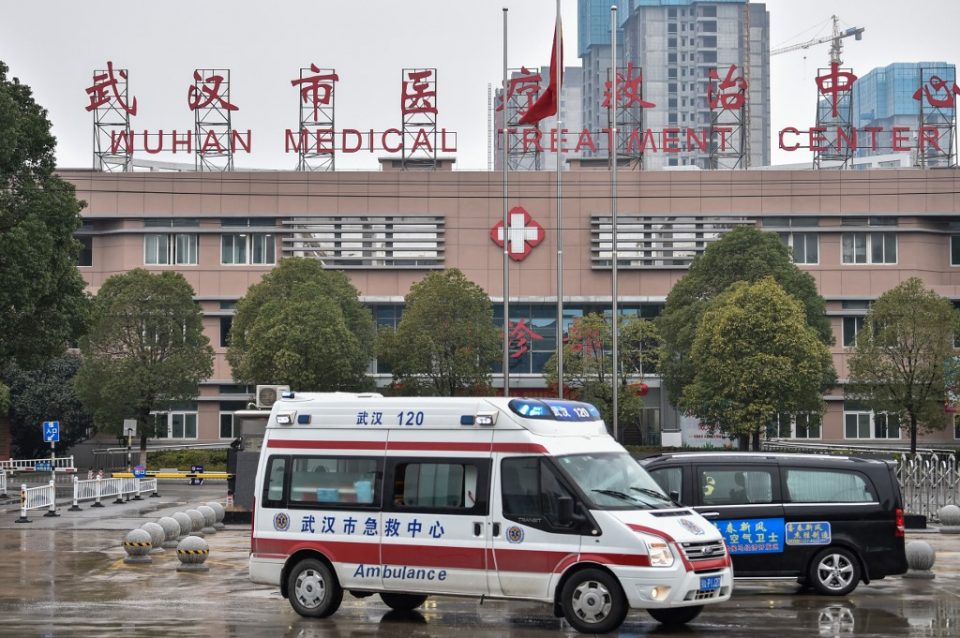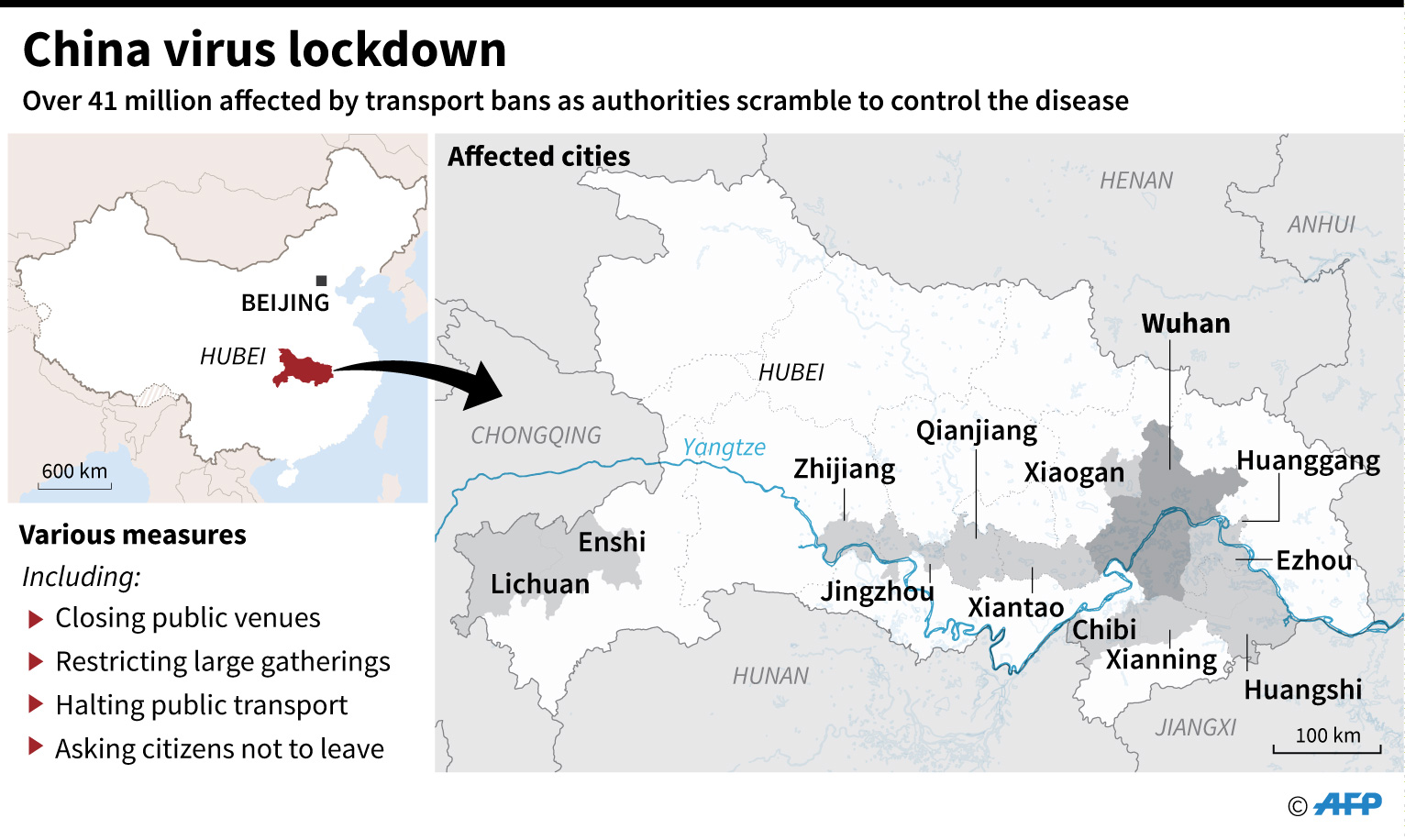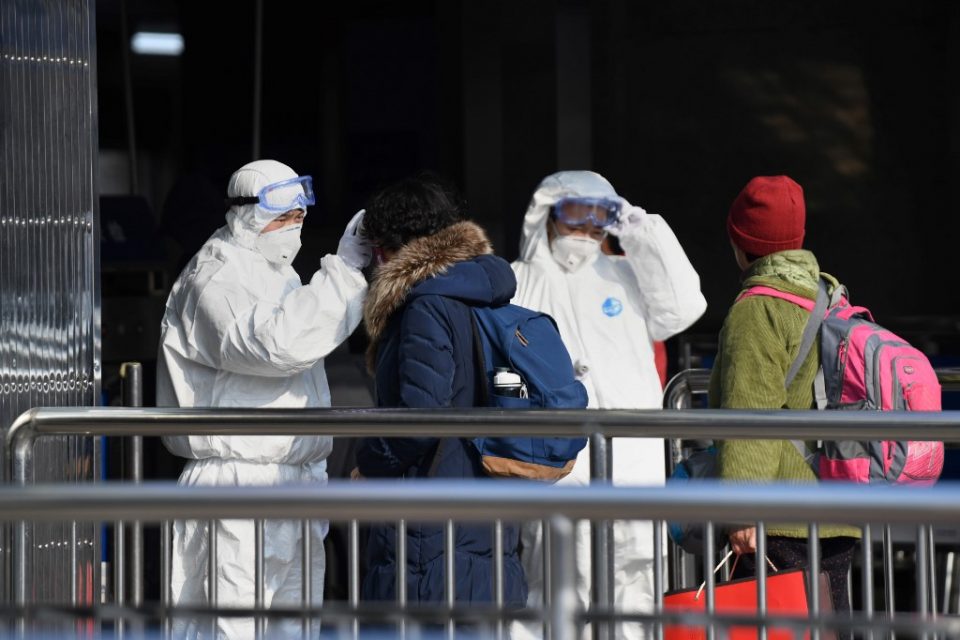
China has imposed a travel ban in more cities, including the epicenter of the deadly coronavirus in Wuhan, bringing the number affected by the shutdown to over 41 million as authorities scramble to control the disease that has killed 26 so far.
Various reports said that 13 cities all in Hubei province where the virus first emerged are now under a transport ban.
Aside from the epicenter of the deadly coronavirus in Wuhan, these are the other cities which either have a partial or total lockdown: Ezhou, Xiantao, Zhijiang, Qianjiang, Huanggang, Chibi, Jingmen, Xianning, Huangshi, Dangyang, Enshi, and Xiaogan.
This is according to Caixin, a Beijing-based media company.

Authorities in Jingzhou, located in Hubei province and one of the cities placed on lockdown, said all rail services leaving the city would close from 0400 GMT, while public buses, passenger transport, tourism buses, ferries and other boats will temporarily stop operations as well.
From nine cities, China on Friday added four more cities to a transport ban around the epicentre of a deadly virus, restricting the movement of some 41 million people in 13 cities, according to Agence France Presse.
China had already sealed off millions more people near the epicentre of a virus outbreak on Friday, shutting down public transport now in nine cities in an unprecedented quarantine effort as the death toll climbed to 26.
Earlier, the BBC said that 10 cities in Chinese central province of Hubei are now in lockdown. The CNBC also reported that 10 cities have suspended transportation.
The state-run Beijing News said on Thursday that China’s capital city Beijing canceled major public events including two popular Lunar New Year temple fairs
While the World Heath Organization held off on declaring a global emergency despite confirmed cases in half a dozen other countries, China expanded a lockdown now covering some 32 million people and cancelled some Lunar New Year celebrations to prevent the disease spreading further.
The virus that emerged in the central city of Wuhan has now infected 830 people, the national health commission said.

The new virus has caused alarm because of its similarity to SARS (Severe Acute Respiratory Syndrome), which killed hundreds across mainland China and Hong Kong in 2002-2003.
The WHO said China faced an emergency but stopped short of making a global declaration that would have prompted greater international cooperation, including possible trade and travel restrictions.
Wuhan, a major industrial and transport hub of 11 million people in the centre of the country, has been rendered a ghost town by China’s imposition of an unprecedented transport quarantine around it and nearby cities.
China has begun its Lunar New Year holiday, typically marked by family gatherings and public events, but the streets of Wuhan were deserted and stores shuttered.
Even the police presence, usually prominent in China, was hardly detectable.
– Worried patients –
In stark contrast, a hospital visited by AFP journalists bustled as worried patients came in to get checked for the virus.
At a temperature-screening station, a medical staffer in full-length white protective suit, face mask and goggles took a thermometer from a middle-aged woman, pausing to examine the reading before quickly turning back to the patient.
“Have you registered? Then go and see the doctor,” the staffer said.
One 35-year-old man voiced the fears of many.
“I have a fever and cough, so I’m worried that I’m infected,” he said, giving only his surname, Li.
“I don’t know the results yet. I’m a bit worried.”
With hundreds of millions of people on the move across China for the holiday, the government has halted all travel out of Wuhan, the city’s public transport has been suspended, and residents have been ordered not to leave home.
Few flights were incoming, further isolating the city.
“This year we have a very scary Chinese New Year. People are not going outside because of the virus,” said a taxi driver in the city, who asked not to be named.
But he was not concerned about potential food shortages in a prolonged shutdown.
“It’s Chinese New Year and people have already bought a lot of things to cook at home for several days,” he said.
But the pathogen, known by its technical name 2019 Novel Coronavirus (2019-nCoV), has caused nationwide alarm, with surgical masks selling out at many outlets in Shanghai, Beijing and other cities.
– Battening the hatches –
Besides Wuhan and Jingzhou, other smaller cities nearby have battened down the hatches, according to Agence France Presse.
In the latest, the city of Huangshi, which has more than two million people, announced Friday it had halted public transport and closed a major bridge.
On Thursday, Huanggang, a city of 7.5 million people, announced that public transport and train services were suspended and citizens were told to not leave the city.
Officials in Xianning, Xiaogan, Enshi and Zhijiang cities — all located in central Hubei province where the virus first emerged — said public transport services including buses and train stations would be closed.
The cities are the latest in Hubei to impose travel restrictions over the previous 24 hours in a bid to curb the spread of the new coronavirus which has infected more than 800 people.
The CNBC reported that these cities were also on lockdown: Xiantao, Ezhou, Qianjiang, Chibi.
Wuhan’s straitjacket tightened further Friday, with the city limiting the number of taxis allowed on roads. Leading Chinese ride-hailing service Didi Chuxing also said it was temporarily suspending service in Wuhan.
To discourage nationwide travel, the government said Friday that all tickets for rail, air, road, or water transport could be exchanged for a full refund.
Beijing has cancelled massive gatherings that usually attract throngs at temples during the New Year holiday, while the historic Forbidden City will close from Saturday.
The respiratory virus emerged from a seafood and animal market in Wuhan in late December. It has spread to several other countries including the United States.
– ‘No global crisis’ –
The National Health Commission said that of the 830 cases in China so far, 177 are in serious condition. Authorities were also examining 1,072 suspected cases.
“This is an emergency in China, but it has not yet become a global health emergency,” WHO chief Tedros Adhanom Ghebreyesus told reporters after two days of talks in Geneva.
Tedros hailed China’s preventive measures but expressed hope that they would be “short in their duration.”
Beijing has been praised for its response, in contrast to SARS, when it took months to report the disease and initially denied WHO experts any access.
China also on Friday confirmed the second virus death outside the Wuhan epicentre, saying a patient died in Heilongjiang province, 2,000 kilometres (1,200 miles) northeast of Wuhan.
Authorities have said most fatalities were aged between 48 and 89 and already suffered from pre-existing health conditions.
(with reports from Agence France-Presse)







